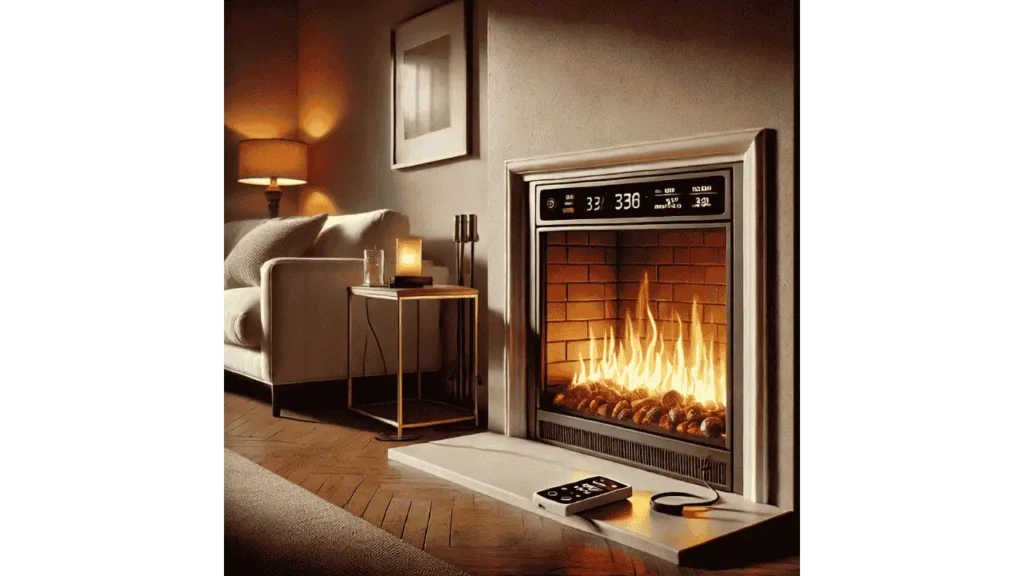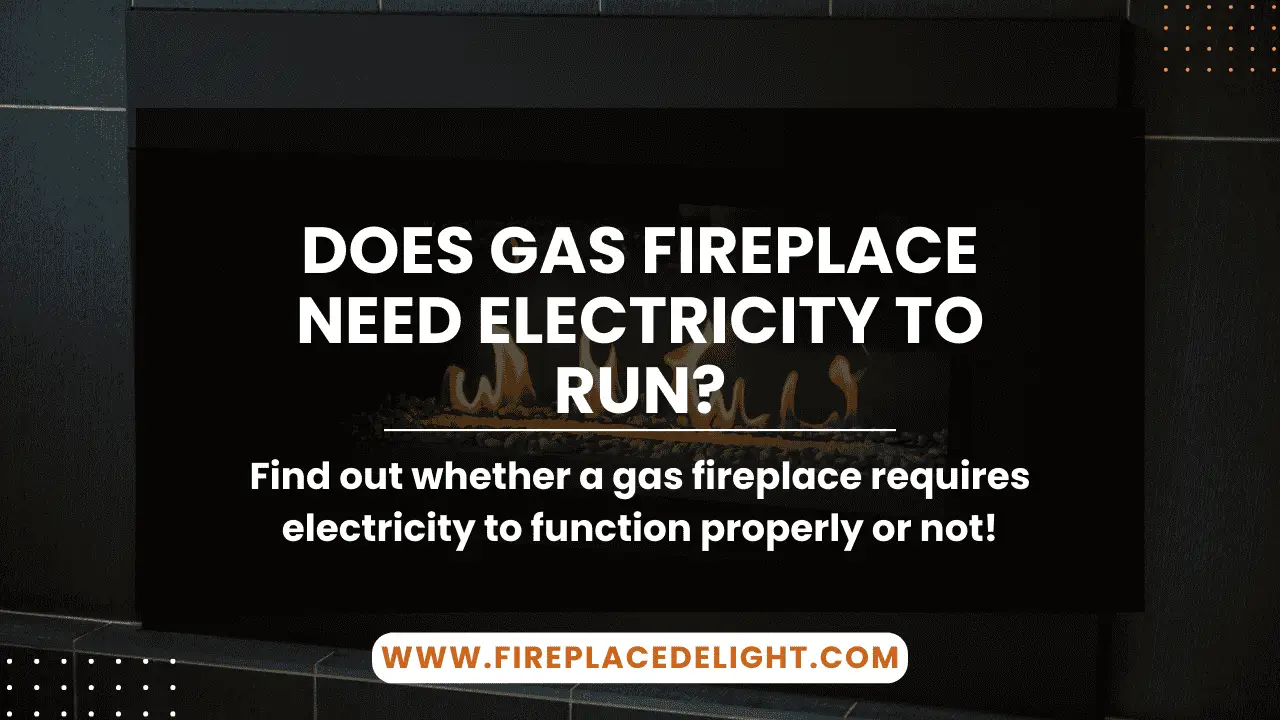When winter hits, you want to know your gas fireplace will keep things cozy, even if the power goes out. It can be frustrating wondering if your fireplace needs electricity to work or if you’ll be left without heat. Luckily, many gas fireplaces can function without electricity, while others come with convenient electric features. In this article, we’ll explore which types of gas fireplaces need electricity, how they perform during power outages, and alternatives like battery backups and manual ignition. I’ve found that knowing these options makes all the difference in keeping your home warm, no matter the circumstances!
Do Gas Fireplaces Need Electricity?
Most gas fireplaces can operate without electricity, but it depends on the model and additional features. Traditional gas fireplaces that use a standing pilot light can work perfectly fine without power since the gas ignites manually. However, modern gas fireplaces, especially those with blowers, electronic ignition systems, or thermostatic controls, often need electricity for those features.
I remember being surprised by how well my fireplace still worked during a power outage, it kept the room cozy, even though the blower didn’t run. So, while electricity enhances functionality, many gas fireplaces will still provide warmth without it.

Do Direct Vent Gas Fireplaces Need Electricity?
Direct vent gas fireplaces can operate without electricity for basic heating, as they rely on a sealed combustion system. However, if your fireplace has features like an electric blower or electronic ignition, these will require power. Without electricity, the fireplace will still heat the room, but it may not distribute warmth as effectively without the blower.
Do Ventless Gas Fireplaces Need Electricity?
Ventless gas fireplaces generally don’t need electricity to run. These fireplaces often use a standing pilot light for ignition, which allows them to operate independently of the power supply. They’re a great option if you want to ensure warmth during power outages, though they won’t have electric-powered features like remote controls.
Which Types of Gas Fireplaces Will Need Electricity?
Gas fireplaces with modern features like electronic ignition systems, blowers, or thermostatic controls will need electricity to function fully. Direct vent models with blowers, for example, require power to circulate heat more efficiently. Some ventless fireplaces also come with added features like remote controls that depend on electricity, though the basic heating function can still work without it.
Will a Gas Fireplace Work During a Power Outage?
Yes, many gas fireplaces will still work during a power outage, especially those with a standing pilot light or manual ignition. While you might lose access to certain features like the blower or remote operation, the fireplace will still produce heat, keeping your space warm even when the power is out. This makes gas fireplaces a reliable heat source during emergencies.
Benefits of Gas Fireplaces with Electricity
While gas fireplaces can function without electricity, having electrical components can greatly enhance your experience. From better control to added ambiance, the electrical features provide convenience and comfort that can make a big difference.
Enhanced Comfort and Control
Electric blowers help distribute heat more evenly throughout the room, ensuring consistent warmth. With thermostatic controls, you can set your desired temperature and let the fireplace maintain it automatically, offering hassle-free comfort.
Remote Operation
Many modern gas fireplaces come with remote controls, allowing you to adjust the flame height, temperature, or even turn the fireplace on and off without leaving your seat. This convenience adds an extra level of comfort, especially on cold evenings.
Added Ambiance
Electric features like adjustable flame settings and even built-in lighting effects can enhance the visual appeal of your gas fireplace. These features allow you to create the perfect ambiance in your space, whether you want a cozy, roaring fire or a subtle, flickering glow.
Safety Features
Electricity also powers additional safety features, such as automatic shut-off systems and overheat protection. These features ensure that your gas fireplace operates safely, giving you peace of mind while enjoying the warmth and comfort it provides.
Alternatives to Electricity for Gas Fireplaces
If you want to ensure your gas fireplace works even during power outages, or if you prefer models that don’t rely on electricity, there are great alternatives to consider. These options provide the same warmth and ambiance, without depending on a power source.
Battery-Operated Options
Some gas fireplaces come with battery backup systems that allow them to operate during a power outage. These systems can power the ignition and basic controls, ensuring your fireplace continues to run smoothly even when the lights go out. It’s a simple solution for maintaining warmth when you need it most.
Manual Ignition
For a no-fuss option, manual ignition fireplaces use a standing pilot light that’s always ready to ignite the fire without electricity. These models are ideal for those who want reliable heat with minimal complexity. Just a quick flip of the switch, and your fireplace is up and running, no power required.
Final Takeaways
Gas fireplaces can work without electricity, providing reliable warmth even during power outages. While electricity enhances features like blowers and remote controls, there are plenty of non-electric alternatives, such as battery backup and manual ignition, to ensure heat when you need it most. With the right setup, you can enjoy the comfort and convenience of a gas fireplace in any situation.
- Do Electric Fireplaces Give Off Heat? - May 7, 2025
- Are TV Stands with Fireplaces Safe? - May 6, 2025
- What Is Fireplace Ash Good For? - May 5, 2025

